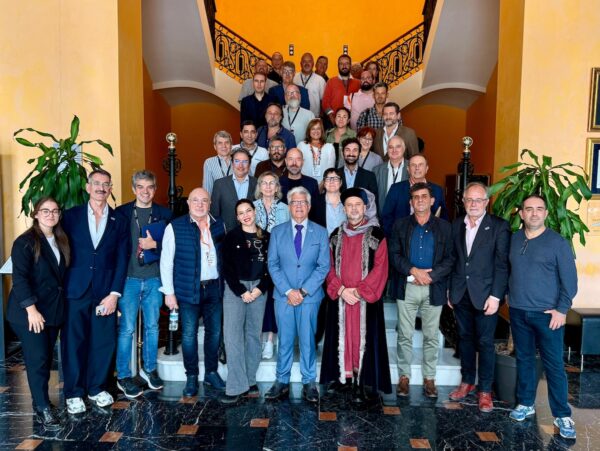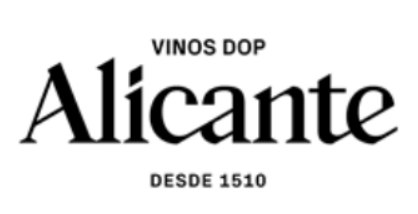Alicante asserts itself as the leading Designation of Origin
at an international conference that
revives the memory of wine as a tool for the future
- From 29 to 31 October, Alicante brought together one of the greatest historical wine heritages at the international conference ‘Alicante, historical capital of Mediterranean wine’, held at the Archaeological Museum, MARQ.
- The conference highlighted the decisive role of wine in Alicante, asserting its place alongside the world’s most important wine regions.
- Research on ‘Alicante 1510’, presented during the conference, justifies Alicante as the world’s first Designation of Origin.

Looking to the past to face the challenges of the future. Under this premise, and as part of its status as the 2025 European Capital of Gastronomy, Alicante is celebrating its rich wine heritage through the international conference “Alicante, historic capital of Mediterranean wine”.
It is a true celebration of wine, defending its well-deserved place in the spotlight throughout the centuries, both culturally and socio-economically, and which has been articulated in a powerful programme of wine-related activities that have turned the city into the historic heart of wine from 29 to 31 October.
For three days, the Archaeological Museum of Alicante (MARQ) served as a successful meeting point for leading experts from a wide variety of wine-producing regions around the world. From Armenia, Egypt, Georgia, Italy, Germany, Hungary and France to different parts of the Iberian Peninsula, they praised and shared with the more than one hundred attendees at the symposium, both in person and online, the millennial history of wine and everything it has meant and means to society. The presentations were recorded and will be published shortly.
During the opening of the conference, José Juan Reus Reus, president of the Regulatory Council of the Alicante Protected Designation of Origin, emphasised that “Alicante is a region that has undergone significant economic and social change over the last 70 years, which (…) has led to much of its past being relegated to the background or even destroyed. However, the existence of a designation of origin such as ours, the commitment of an entire sector and, especially, the younger generation, who are aware of the delicate and significant nature of their past, mean that we are trying to recover or preserve the memory of Alicante wine.” The opening ceremony was also attended by the Deputies for Culture and Local Development of the Alicante Provincial Council, Juan de Dios Navarro and Carlos Pastor, respectively, and the director of the museum, Manolo Olcina.
Historic tastings in locations steeped in history
The conference was complemented by a series of extraordinary tastings, led by some of the most important communicators in the world of wine, which took place in three emblematic locations in the city: Santa Bárbara Castle, Casa Mediterráneo and the Co-Cathedral of St. Nicholas.
The first tasting, which took place on 29 October, was led by the prestigious English Master of Wine Sarah Jane Evans. Under the evocative title of Tasting History, and in the unbeatable setting of the halls of Santa Bárbara Castle, she took us on a liquid journey through the wines of the Mediterranean that are part of its history; classics made from varieties such as Malvasia, Muscat, Roditis, Kisi and Merwah, produced in deeply Mediterranean styles, with origins as diverse as Greece, Lebanon, Georgia, Armenia and Alicante. ‘I have sought out wines of a very classic style, made with historic varieties or those that represent a renewal in the area,’ said Evans, ‘because it is very difficult to find wines like those made centuries ago: from wines in amphorae to the revival of styles as typically Mediterranean as retsina or raisin wines.’
Thursday, 30 October, was the day dedicated to Young People with History. Beth Willard (taster for Tim Atkin MW’s team, judge and co-chair of the Decanter World Wine Awards) and María José Huertas, a sommelier who has risen through the ranks of wine communication since working with Paco Roncero at the Casino de Madrid, chose Casa Mediterráneo to share the vision that new generations are bringing to Mediterranean wine profiles. The two great communicators, who had never before conducted a joint tasting, showed perfect harmony as they took us on a journey through the ‘most modern face of the Mediterranean’, focusing on contemporary wines with one foot in the past of their region, taking us to countries as diverse as Bosnia and Herzegovina, Sicily, Georgia, Croatia… but also Penedés, Mallorca and Alicante.
The grand finale came on Friday, 31 October, courtesy of Ferran Centelles (Drinks Manager at ElBulliFoundation) and Pedro Ballesteros MW, two of today’s leading wine communicators, who, in the spectacular cloister of the Co-Cathedral of St. Nicholas, sought the essence and truth of Fondillón: In Fondillón, Veritas. Centelles and Ballesteros brought to light a selection of some of the gems treasured in the most exclusive cellars of the Vinalopó wineries, reinterpreting the ‘humanity’ and symbolism of Alicante’s Fondillones in a tasting that began with a private visit to the temple and a demonstration of the power of its 15th-century organ. As Centelles pointed out, it was ‘a unique opportunity to taste almost all the Fondillones produced in a single tasting’, highlighting that Fondillón is ‘a magical product, unlike any other in the world, because it is an oxidative wine, something extremely rare, I would say a miracle; a wine for meditation, for complexity, and that is why the Co-Cathedral was the perfect place’.
The event also served to showcase research on ‘Alicante 1510’ which supports Alicante as the world’s first Designation of Origin, thanks to “the existence of a defined territory, a specific style of winemaking and wines, and brand prestige dating back to the 12th century (with records, control measures and a series of other protocols) which predates Porto by two hundred years. This research was endorsed by the detailed presentation given by José Luis Menéndez, director of the symposium.
‘Alicante, historic capital of Mediterranean wine’ has thus highlighted the incalculable wealth of Alicante’s wine-making past, showcasing the brilliant revival of memory and respect that its wines are currently experiencing. A firm proposal from the Alicante Wine PDO, which is proving to be an essential tool for tackling all the challenges of the present, from history to the future.

